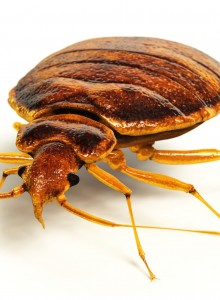Get a Fast & Free Estimate
Mistakes to Avoid During Bed Bug Removal
Bed bugs are an unfortunate fact of life in New York, and can occur anywhere, even in the cleanest of homes and businesses. Fortunately, bed bug removal is a relatively straightforward and common process. Yet for bed bug removal to be effective, you need to know what to do before and after the procedure to make sure that the bed bug population has been totally eradicated.
Do Not wait
First, do not wait. As soon as you detect bed bugs, get your place inspected. This mistake is all too common among people who think that the problem will go away simply by wishing it away. Like any other pest, bed bugs propagate rapidly. What was once a small colony can become a household infestation.
Target all the areas/Rooms
Second, do not make the mistake of only focusing on one piece of furniture or even one room. If you call a bed bug specialist in New York like Viking, they will remind you that bed bugs can live in chairs, floors, and in closets. Effective bed bug removal does not just target the areas you know bed bugs are living, such as mattresses.
Locate Hidden Areas
A professional service should be offering you detection services that help locate hidden areas where the colonies are breeding. You could waste a lot of money by assuming that bed bugs are only living in the bed. Detection services done properly find problems and eradicate them efficiently and cost-effectively. Common detection services may include the use of dogs trained to smell the bed bugs.
Finally, use the bed bug problem as an opportunity to take action by getting rid of clutter and laundering or tossing out all the old fabrics and linens in your home. Avoid the mistakes most people in New York make by procrastinating on bed bugs and call a bed bug removal service now.
Recommendations to prevent and eliminate mosquito breeding sites
About Sabethes
“There is no other mosquito in the world that has such an elegant appearance: its body is quite large, covered with blue and green iridescent scales. The legs are exceptionally long, each bearing a wide flattened brush of hairs, like a paddle. During flight the legs are extended forward and backwards, partially curved, giving the hovering mosquito a unique “aircraft” appearance. Members of the genus are found only in northern Latin America, and the females are important vectors of several tropical diseases, such as yellow fever and dengue fever. The function of the paddles found on the legs of males and females is poorly understood. A scientific study showed that males court and mate normally even when the paddles are removed, whereas paddle-less females are rarely approached by males. It is widely accepted among evolutionary scientists that elaborate ornaments on females take part in reversal of the sex roles, where females compete among themselves for the attention of and mating with the males. This may be a possible explanation for the extensive ornamentation on Sabethes females. Like many tropical mosquito species, Sabethes reproduce in small tree holes or bromeliads, where accumulating rainwater serves as medium for their aquatic larvae.”How to Get Rid of Bed Bugs Completely and Permanently

Identify the problem.
To you identify the problem with bed bugs, you might notice the type of bite left on your skin or as tiny drops of blood on the sheets. If you have keen eyes, you might even see some eggs. However, only a qualified professional can really detect the problem and help you get rid of bed bugs completely and permanently.Prevent the problem from getting bigger.
If you suspect bed bugs, it is best to call a specialist now for bed bug removal rather than wait. The only way to get rid of bed bugs completely and permanently is to detect them early and embark on a multifaceted treatment and intervention program. For example, Viking Pest Control in New Jersey has a team of trained canines who are uniquely able to smell the bed bugs-long before any human being could. Before our team of canine specialists comes into your home, you can do your part by eliminating old junk and clutter that might be allowing the bed bugs to flourish in your home.Call a specialist.
Calling Viking Pest Control in New Jersey is the best way to get rid of bed bugs completely and permanently. The bed bug products sold in stores are largely ineffective and may cause you to put off a more thorough inspection. Save yourself and your family a lot of time, money and trouble by calling a specialist now and treating the problem.
Back to School Without Bed Bugs
Viking Pest Control offers tips to help prevent bed bugs from taking up residence in dorms:
- Fully inspect suitcases prior to re-packing for a return to school, especially if you have traveled during the summer. Wash all clothes, even those that haven’t been worn, in hot water.
- On move-in day, thoroughly inspect the entire room including mattress seams on beds, behind the headboard and in furniture using a flashlight for good visibility. If you see anything suspect, immediately contact a university facility manager or landlord.
- If you are considering bringing "secondhand" furniture to campus, properly inspect it for telltale signs of bed bugs. If you notice and signs of shed skins, small blot marks/pepper-like stains do not bring it to campus.
Top 5 Ways People Bring Bed Bugs Into Their Home
Vacation
 Most experts would agree that vacationing away from home is the most likely way to bring bed bugs home. Vacations outside of the U.S., especially to countries that “tolerate” insects more than we do here in the U.S., are areas where bed bugs hitchhike home with you. We also need to point out that certain cities in the U.S. have higher reports and incidents of bed bugs than other cities. This is probably due to the sheer numbers of visitors to those popular cities. This is constantly changing so we are not going to mention any countries or cities here in this article. It is more important to focus on how to avoid bringing them back with you.
Most experts would agree that vacationing away from home is the most likely way to bring bed bugs home. Vacations outside of the U.S., especially to countries that “tolerate” insects more than we do here in the U.S., are areas where bed bugs hitchhike home with you. We also need to point out that certain cities in the U.S. have higher reports and incidents of bed bugs than other cities. This is probably due to the sheer numbers of visitors to those popular cities. This is constantly changing so we are not going to mention any countries or cities here in this article. It is more important to focus on how to avoid bringing them back with you.
Transportation
 Especially when you vacation outside the U.S. Various modes of transportation could easily be where you might pick up bed bugs. Bed bugs are nighttime feeders and typically hide in dark cracks and crevices during the day. If they are hungry and haven’t fed for a while and you ride a bus or grab a taxi cab, you could pick up a bed bug. Please understand not every cab or bus has active bed bugs. It is impossible to predict when or how this happens, but it does.
Especially when you vacation outside the U.S. Various modes of transportation could easily be where you might pick up bed bugs. Bed bugs are nighttime feeders and typically hide in dark cracks and crevices during the day. If they are hungry and haven’t fed for a while and you ride a bus or grab a taxi cab, you could pick up a bed bug. Please understand not every cab or bus has active bed bugs. It is impossible to predict when or how this happens, but it does.
Purchases For Home
 It is highly unlikely that you would bring bed bugs home from purchasing items such as furniture, bedding and other household items from the stores where you typically shop. Bed bugs would be more likely be brought home if you purchase items from garage sales, thrift shops, used furniture and other types of venues. This again would be more likely where there is a high volume or lots of items accepted and sold. Just like activity in large cities where there are a lot of visitors, high volume just lends itself to more potential for the spread of bed bugs. It is not recommended to take furniture or used items left at curbs of homes, especially furniture.
It is highly unlikely that you would bring bed bugs home from purchasing items such as furniture, bedding and other household items from the stores where you typically shop. Bed bugs would be more likely be brought home if you purchase items from garage sales, thrift shops, used furniture and other types of venues. This again would be more likely where there is a high volume or lots of items accepted and sold. Just like activity in large cities where there are a lot of visitors, high volume just lends itself to more potential for the spread of bed bugs. It is not recommended to take furniture or used items left at curbs of homes, especially furniture.
Visiting / Overnights / Visitors / Camps etc.
 Summer time camps such as sports camps where people from all over the U.S. come in for a few weeks of summer sports camps. A lot of personal items are brought in and again depending on the number of people visiting camps and temporary living just increases the odds of potentially picking up bed bugs and bringing them home. College move in days are approaching. Warn your college student to NEVER pick up a piece of furniture taken out of a college dormitory and left curbside.
Summer time camps such as sports camps where people from all over the U.S. come in for a few weeks of summer sports camps. A lot of personal items are brought in and again depending on the number of people visiting camps and temporary living just increases the odds of potentially picking up bed bugs and bringing them home. College move in days are approaching. Warn your college student to NEVER pick up a piece of furniture taken out of a college dormitory and left curbside.
Hotels / Motels / Hostels etc.
 Last but not least are visits to areas of hospitality. Keep in mind that if a hospitality location has bed bugs, they were brought in by a visitor. It is not the fault of the hospitality management. The daily cleaning, vacuuming, laundering of bedding is enough to keep most bed bugs from becoming established and infesting a hotel room. Housekeeping staff for most all hotel chains are trained on how to detect bed bugs in guest rooms. The hospitality industry especially in the U.S. is diligent and pro-active when it comes to bed bugs in their establishments. You are more vulnerable when you travel overseas where bed bugs are prolific and tolerated.
Last but not least are visits to areas of hospitality. Keep in mind that if a hospitality location has bed bugs, they were brought in by a visitor. It is not the fault of the hospitality management. The daily cleaning, vacuuming, laundering of bedding is enough to keep most bed bugs from becoming established and infesting a hotel room. Housekeeping staff for most all hotel chains are trained on how to detect bed bugs in guest rooms. The hospitality industry especially in the U.S. is diligent and pro-active when it comes to bed bugs in their establishments. You are more vulnerable when you travel overseas where bed bugs are prolific and tolerated.
Bed Bug Prevention Tips
Be aware and be diligent. When traveling and staying overnight, check for bed bugs. Pull the sheets back and look in the seams of the mattress. Open drawers to night stands and dressers and look for bed bugs. If infested, you’ll see them in the corners of the furniture or underneath. Ask the hotel if there have been any bed bugs reported. (They are obligated to tell you!) When you come home, leave your luggage outside or in your garage. Put your clothes in plastic bags and seal them. Vacuum your luggage and other items you took with you. Throw the vacuum bag away when finished. Laundering your clothes with hot water and detergent and drying for at least 20 minutes in the dryer will exterminate all stages of bed bugs. You can take disinfectant sprays and spray your luggage and other items. Keep these items wrapped in plastic bags in your garage or storage area. Check for signs of bed bugs and if you need Peace of Mind, call Viking and we will inspect your home. In addition to our highly trained staff of Pest Management Professionals, we have a K-9 Team for Bed bug detection. You can schedule service online at preview0.dev1.snyderpreview.com or by calling our toll free number 800-618-BUGS (2847). Legal Disclaimer: The information in this article is taken from research on bed bug biology, habits, distribution and control. References to industries, events, and scenarios mentioned in this article are not specific to any brand, product, industry or company. Following the information presented in this article does not guarantee or imply relief from exposure to bed bugs. Bed bug information as well as monitoring, inspection and control is constantly evolving and changes will occur over time. Viking does not assume any liability from information presented in this article. Viking® is a trademark of Viking® Termite and Pest Control Inc. You can contact us at info@vikingpest.comBedBugs Infestation
Bedbugs “Attend” Princeton University
No Place is immune from infestation Say Pest Controllers
In early October, students in a Princeton University dormitory discovered a bedbug infestation in Rockefeller College’s Holder Hall and had to be relocated while a pest control firm was called in to eliminate it. Bed bugs were first reported in Holder Hall in September. “The infestation,” said Leonard Douglen, Executive Director of the New Jersey Pest Management Association, “reportedly was the result of a piece of personal furniture brought into the dorm by one of the students and is a good example of how bed bugs can migrate from place to place.” “There is no place where humans live or work that is immune to a bed bug infestation,” said Douglen, “and this problem has now spread to all fifty states since they became a significant pest problem as the new century began, invading homes, apartments, dormitories, hotels, and just about anywhere humans lay down to sleep. Bedbugs can detect a body in the room or in one nearby. Bed bugs get their name from their favorite place to hide out, a mattress, box spring, and bed frame. They can be found in any dark, warm place in a home, apartment, or workplace. “There has been a dramatic increase” in calls to pest management firms concerning bedbug problems in recent years, Douglen estimates that bedbug-related calls throughout New Jersey has increased 30% to 40% since 2000. “Bedbugs cannot be exterminated with off-the-shelf pesticides,” said Douglen. “Only a professional pest management firm has the knowledge and the EPA-approved pesticides to rid a home or other structure of bedbugs and it usually takes several trips to do it.” Douglen noted that pest management professionals frequently recommend purchasing plastic cases for mattresses that will trap any existing bedbug infestation and keep out a new one. “The plastic must be at least three millimeters thick.” “The good news is that bedbugs do not spread diseases in the same way as mosquitoes or other pest insects. This doesn’t mean, however, that being bitten by them doesn’t cause a lot of itching and discomfort.” “The problem is attributed to the increase in international travel. People coming into New Jersey and other States from foreign nations bring them in via their luggage. From there, they can spread to anywhere people stay for the night.” Not only do Americans travel abroad in large numbers, but millions of foreigners visit the United States every year. The quarter-inch long bugs feed primarily on humans at night when they are asleep. Some people have no reactions to the bites, but others experience swelling and redness where they are bitten. While bedbugs do not spread disease, they do leave behind tiny droppings of blood and give off a sickly sweet odor. Bedbugs can live for more than a year without eating and can withstand a wide range of temperatures from nearly freezing to almost 113 degrees Fahrenheit. This increases the difficulty of eliminating them. Female bedbugs lay from 200 to 500 eggs, attaching them with a glue-like substance. They hatch in about ten days. Though they do not grow larger than a small seed, they go through five nymph stages, each of which requires a single blood meal before molting. They can suck up to six times their weight and feeding takes from three to ten minutes. Bedbugs produce three to four generations within a year’s time. Founded in 1941, the association’s member firms are also members of the National Pest Management Association. The association maintains a website at www.njpma.com where consumers can find listings of member firms Leonard Douglen @ 800-524-9942 Disseminated by The Caruba Organization Alan Caruba @ (973) 763-6392What You Should Know About Bed Bugs
Bed Bug Tips from Viking Pest Control
“The return of bed bugs, formerly a rare pest problem,” says Leonard Douglen, Executive Director of the New Jersey Pest Management Association, “has people asking all kinds of questions these days.” “The problem had pest control professionals asking the same questions,” says Douglen, “because many of the younger technicians had never even seen a bed bug and, to make matters worse, they are very difficult to spot and require a lot of effort to eliminate.” Industry experts such as Paul J. Bello set to work to answer those questions and among the advice he is dispensing these days are the following tips that homeowners, apartment dwellers, business and vacation travelers, and others should know in order to avoid or deal with a bed bug infestation.- Bedbugs are hitchhikers. Their reappearance in the U.S. is likely due to tourists from other nations, military personnel returning from the Middle East, and business travelers from less developed nations.
- Nature has endowed bed bugs with the ability to live a long time, up to a year, between meals. Moreover, they are indifferent to cold weather, so they can easily over-winter just about anywhere. They are very tiny and their eggs are tinier, barely one millimeter long or 1/32nd of an inch.
- Once discovered, it takes a lot of time to get rid of bed bugs. A bed bug problem does not lend itself to a one-stop, quick application of a pesticide, and total elimination. Moreover, pest management technicians are trained where to look and, even then, will use a flashlight and magnifying glass. There are now bed bug-sniffing dogs that have proven effective.
- There are no proven bed bug repellent products currently available. And, yes, you can be bitten and not know it.
- Bed bugs spend most of their time hiding and prefer undisturbed areas. The favorite place is the mattress, box spring, and bed frame; hence the name.
- If you travel, pest management professionals recommend you bring large, white, draw-string plastic trash bags with you to prevent bed bugs from getting into your luggage. If you spot the tiny creatures, you can keep them in the bag to be destroyed and to avoid bringing them into your home. Staying in a five-star hotel is not a guarantee against bed bugs.
- Bed bugs are “a people problem”, not a “building” problem so almost anyone returning home, such as a college student, can unwittingly cause an infestation. Experienced pest management professionals will tell you that people who unknowingly bring bed bugs home may not discover they have a problem for anywhere from weeks to months.
- After professional treatment, it may take up to eight weeks before you can be absolutely sure no bed bugs are seen.
- Following a treatment, the purchase of high quality mattress encasements to seal in unseen bed bugs or their eggs is an excellent investment.
- A bed bug bite generally appears as a raised reddened bump on the skin and is often itchy. Bed bugs, however, are not known to transmit diseases.











